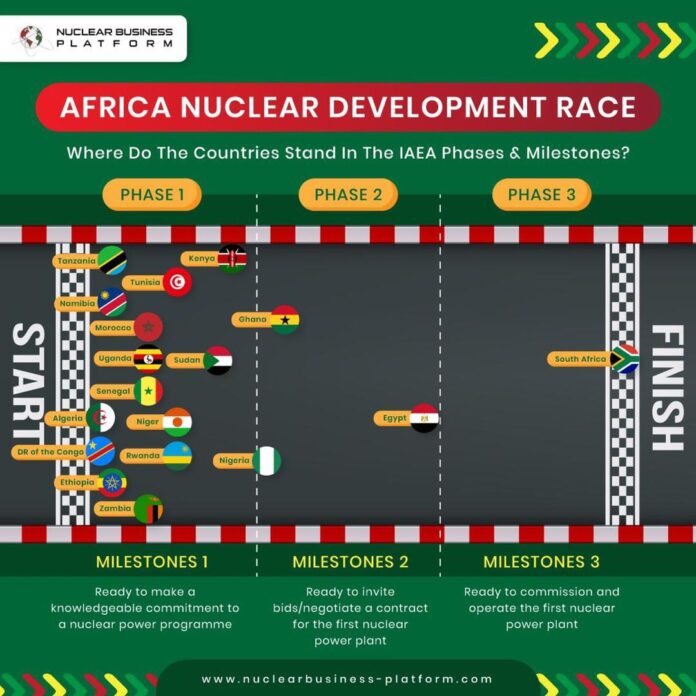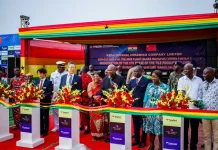Ghana is ready to invite bids towards the negotiation of a contract to set up the first nuclear power plant, according to the International Atomic Energy Agency (IAEA).
The country’s current position falls within Milestone 2, the penultimate milestone to commissioning and operating a nuclear plant in Ghana.
This places her behind only Egypt and South Africa, and ahead of Nigeria, in the latest Africa Nuclear Development Race rankings.
The Ghana Nuclear Power Programme formed in 2012, seeks to ensure the smooth implementation of the Ghana Nuclear Power Road Map towards the commissioning of the first Nuclear Power Plant in Ghana by 2030 to support baseload power demand and provide cheap power for industrialization.
The decision to revive interest in nuclear energy – and its associated technologies were on the back of a report of a Presidential Committee in 2007, which recommended the incorporation of nuclear power into the energy mix for Ghana.
Ghana Nuclear Power Planning Organisation was subsequently established to steer the implementation of a nuclear energy programme to address all the issues associated with nuclear planning and this is under coordination by the Nuclear Power Unit of the Ministry of Energy
At the 26th United Nations Climate Change Conference in Glasgow Scotland, Energy Minister, Hon. Dr. Matthew Opoku Prempeh in a panel discussion said in response to a question on nuclear energy that Ghana’s energy mix has significant contributions from renewable energy sources, particularly hydro, which forms the baseload energy in the country.
According to Dr. Prempeh, due to the growth in demand and the incidence of climate change, the large hydro dams have become unreliable and cannot meet baseload demand in the near future.
He said nuclear energy is the only clean baseload power that will meet the energy source criteria for the country, given that Ghana is mindful of her commitment to the Paris Agreement, not to contribute to the increase in carbon footprint and her determination to provide baseload power.
The Manhyia South Member of Parliament also intimated that a nuclear power plant built in any part of the continent should be considered as a replacement for a possible fossil fuel power plant, as this is a step towards global decarbonization.
He called for a comprehensive program with funding to be initiated for nascent countries to enable them to build capacity to address all the 19 infrastructure issues required by the IAEA for such countries.











































